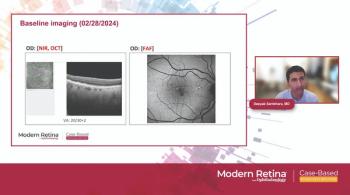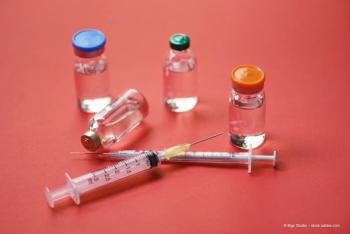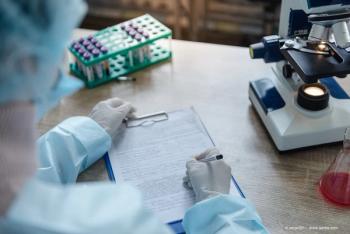
ASRS 2023: Diana Do, MD, shares update on PHOTON study for diabetic macular edema
Diana Do, MD, professor of ophthalmology and vice chair of clinical affairs at the Byers Eye Institute at Stanford University, spoke with our team about the 2-year data on the PHOTON study, which involved 8 milligrams of aflibercept for diabetic macular edema at the 2023 ASRS meeting in Seattle, Washington.
Diana Do, MD, professor of ophthalmology and vice chair of clinical affairs at the Byers Eye Institute at Stanford University, spoke with our team about the 2-year data on the PHOTON study, which involved 8 milligrams of aflibercept for diabetic macular edema at the 2023 ASRS meeting in Seattle, Washington.
Video Transcript
Editor's note - This transcript has been edited for clarity.
Diana Do, MD:
Hi, I'm Dr Diana Do, professor of ophthalmology and vice chair of clinical affairs at the Byers Eye Institute at Stanford University. Today, I had the pleasure of delivering the 2-year data on the PHOTON study, which involved 8 milligrams of aflibercept for diabetic macular edema.
The key take home points are that 8 milligrams of aflibercept dosed every 12 weeks or every 16 Weeks was non -nferior to 2 milligrams of aflibercept given every 8 weeks, and these benefits were sustained through 2 years of follow up. In addition, it's remarkable that those eyes randomized to the 8 milligram dosing group were able to maintain dosing intervals of 12 weeks and 16 weeks for the vast majority of patients in the study. In fact, 89 percent of 8 milligram-treated eyes maintained 12 weeks or longer dosing intervals through 2 years. And at the last interval of dosing. Approximately 27 percent of subjects are able to be dosed at 24 weeks. In terms of safety, 8 milligrams of aflibercept had very low rates of intraocular inflammation, and the safety was comparable to that of 2 milligrams of aflibercept. In summary, 8 milligrams of aflibercept provided improved visual acuity outcomes and reductions in retinal thickness that were sustained through 2 years while decreasing the burden of frequent injections.
Newsletter
Keep your retina practice on the forefront—subscribe for expert analysis and emerging trends in retinal disease management.










































